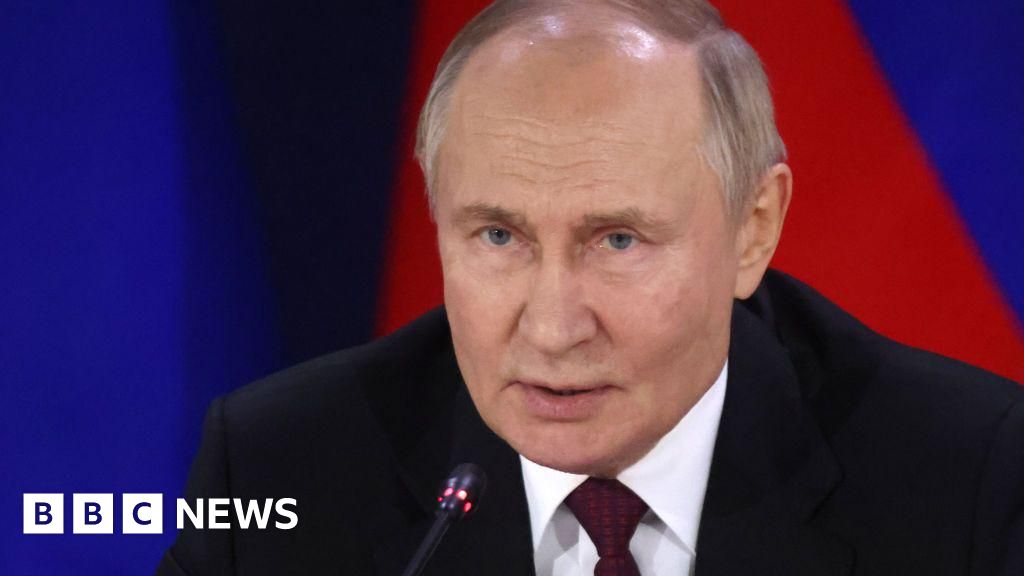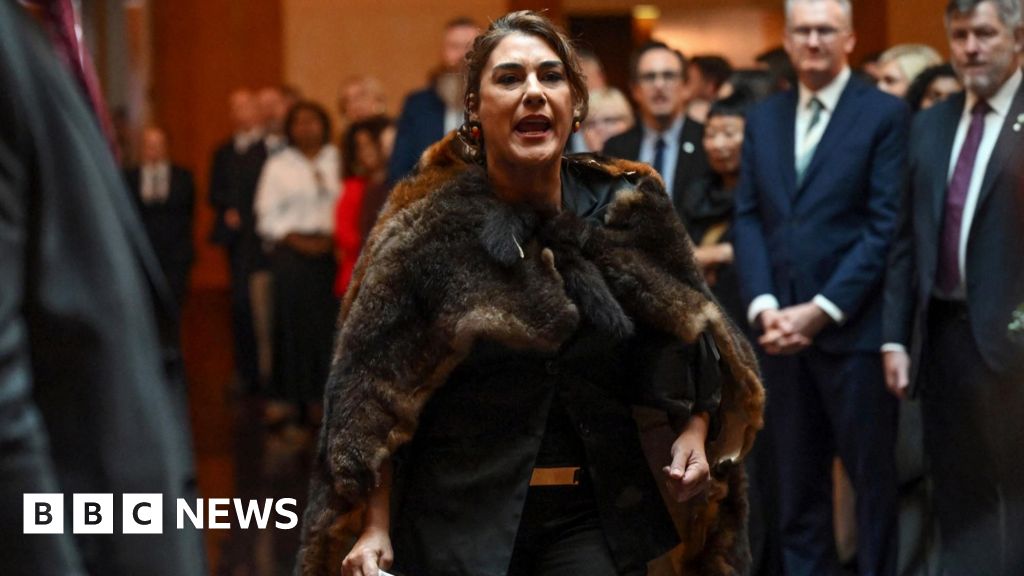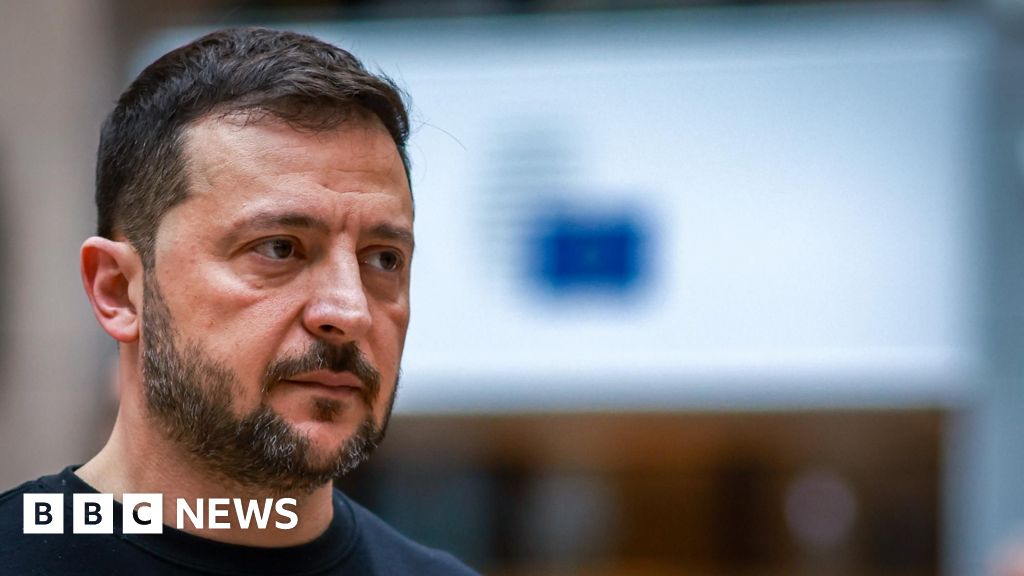ARTICLE AD BOX
BBC's Katty Kay challenges Kari Lake on election claims
By Katty Kay
US Special Correspondent
An election-denying former journalist could be the next governor of Arizona. But does Kari Lake truly believe in what she's campaigned on - and will it matter when results of the razor-thin contest are finally called?
It was 130 degrees, but Kari Lake was cool as a cucumber.
Her immaculate hair-do and pristine make-up had somehow defied the sweaty ravages of the summer heat.
Lake spent 22 years as a TV anchor on Arizona's local Fox 10 news channel before jumping into politics with a run for Arizona governor this year, and her poised on-air persona has been one of her most powerful political weapons.
I met Lake this summer at a coffee morning hosted at a retirement community in Wickenburg, a couple of hours north of Phoenix. Lake had driven out there to campaign, soliciting votes and donations, from this critical group of constituents. She invited us to join them.
No Republican can hope to win state-wide office in Arizona without the support of older white voters, and in the pristine house on Tenderfoot Way, that's exactly what she found.
My crew and I arrived before Lake, and the room of a few dozen supporters was already buzzing with anticipation. They recognise Lake from her years reading the news; she's a celebrity in Arizona, and they were very excited to meet her. One elderly woman told me she only hoped Lake would be as glamorous in the flesh as she was on TV.
And when the TV anchor turned conservative firebrand finally arrived she didn't disappoint.
Image source, Getty Images
Image caption,Kari Lake speaking a rally before the election
Lake is a real pro at working a room. Those years performing for the camera have served her well, and she walked in confidently, with a wide smile. "Oh my gosh, how are you?" she beamed. "Nice to see you, hi everyone. Gorgeous neighbourhood but even better looking people."
If it was a bit canned, they didn't seem to mind. She'd been in the room less than a minute and had them eating out of her hand. I felt I was watching a master-class in retail politics.
Lake had a smile for everyone. Except me. She doesn't like journalists - which is odd since she was one for so long.
"I made a very difficult decision to walk away from my career," she explained. "I realised the work had become immoral. The field has gone full propaganda, and they are lying to the people. So I decided to throw my hat into the ring."
She paused for the applause and then a sly dig. "And, you know, we've got the media here. I'm about to do an interview with them, and I do hope they're fair." More applause.
For the next fifteen minutes Lake told this group of conservative voters what she planned to do if they elected her as governor. Her list included banning abortion, banning "woke" ideology in schools, clamping down on illegal immigration and litigating the 2020 election results.
"Without honest elections and a secure border, we no longer have a country and we're not going to let Arizona go," she said.
That didn't just get applause, it got appreciative whistles too.
Early in the campaign, Lake won Donald Trump's endorsement by placing herself on the conservative wing of the Republican party, and more importantly, by claiming the 2020 election was stolen (though there is no evidence that it was). Her political ideology is right in line with that of his supporters.
Image source, Getty Images
Image caption,Kari Lake embraces former US President Donald Trump at a rally
By and large, this Republican women's coffee morning was happy with what they heard. Their only real concern was whether she was conservative enough.
The TV anchor once donated to one Barack Obama when he was running for President in 2008, and this crowd wanted to know if she was worthy of Donald Trump's endorsement. "Being new to this party, how did you manage to get Trump's endorsement?" one of the women asked.
"I've been a registered Republican almost 30 years. For four years I registered as a Democrat. I took a chance on a newcomer named Obama and was disappointed," she explained, adding: "President Trump knows a fighter when he sees one. He knows a winner when he sees one."
At that point she wrapped up her campaign pitch, and said goodbye with more hugs and effusive compliments - and one more shot across my bow. "What do you think: are the BBC going to be fair?" she asked the room.
We'd set up for our interview with her in another room of the house, and her press team insisted on filming us filming her. It was a little unnerving, but they said they wanted to make sure we didn't misrepresent her.
Interviewing Lake is an exercise in frustration. First, she loves fighting with the press, and is uniquely well placed to do it.
She told reporters that if she becomes governor, she'll be their "worst fricking nightmare".
Second, she refuses to concede any doubt at all in her own election denial. During our interview, I put it to her that there was no evidence the 2020 election had been stolen. I pointed out that the Arizona Republican party's own recount had confirmed that Joe Biden had won the state. I reminded her that over 60 lawsuits claiming election fraud had been dismissed for lack of cause by judges around the US, including judges Trump himself had appointed.
It made no difference. She is far more disciplined and on message than Trump could ever be.
"We could sit here all day," she said. "I can go over the evidence and the media still won't believe it because they're on a mission to discredit that."
The said evidence has never been presented, at least not in public. If the Lake team has it, we haven't seen it. She told me Arizona's attorney general has sat on a mountain of evidence. He says he's wrapped up his investigation and there's no evidence of fraud. The back-and-forth of baseless claims is frustrating. This should be black and white, fact-based, especially, one would think, to a news journalist.
I went into my interview with Lake hoping to discover if she really believes what she says about the election being rigged, or if she just uses the conspiracy as a useful way to win votes. Honestly, I left none the wiser.
And maybe it doesn't really matter. Lake is still casting doubt on the validity of elections, this time her own. And whether she believes it or not, millions of her supporters do. That's where the damage to American democracy can be done.

 2 years ago
16
2 years ago
16








 English (US)
English (US)